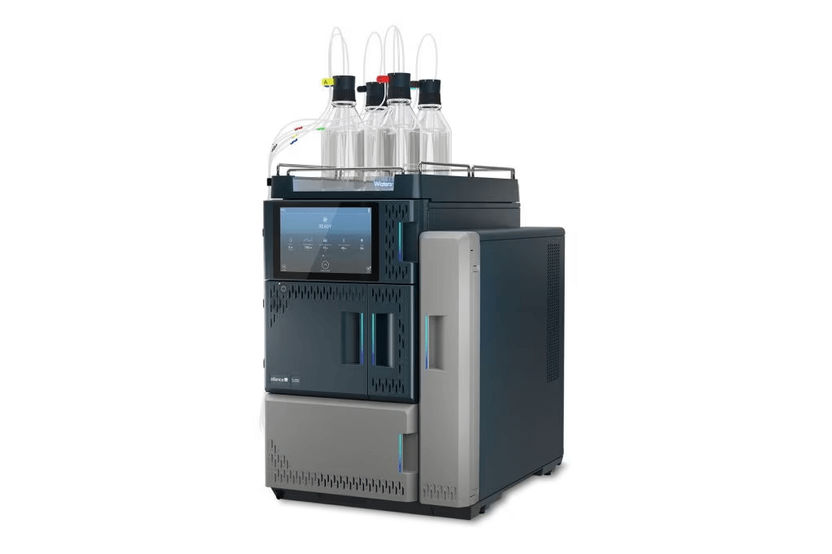Live long, stay healthy: Study reveals important health markers
5 tips for healthy ageing
In a recent study, the Leibniz Institute for Prevention Research and Epidemiology - BIPS has made significant progress in identifying health markers that are crucial for a long and healthy life. Led by Prof. Dr. Krasimira Aleksandrova and in close collaboration with the German Institute of Human nutrition Potsdam-Rehbruecke (DIfE), the research provides valuable insights for healthy aging.
In the study published in the journal Age and Ageing, Aleksandrova and her team analyzed specific combinations of molecular markers reflecting various biological processes as possible indicators of healthy aging. The focus was particularly on identifying specific combinations of blood biomarkers that can help distinguish people that are reaching older age in good health versus those that develop chronic diseases, such as diabetes, coronary heart disease and cancer. “Our results show that people who reach old age and remain free of chronic diseases are those who have maintained optimal levels of specific combinations of metabolic analytes linked with insulin sensitivity and inflammation throughout late phases of their life”, explains Aleksandrova. This may indicate a common protective mechanism that reduces the risk of age-related diseases. By understanding these markers and their complex interrelation, we can better assess what preventive measures need to be taken to avoid chronic diseases and improve quality of life at old age.
Methodology of the study
For the study, data was collected from a large group of older adults who were part of the EPIC-Potsdam study (EPIC: European Prospective Investigation into Cancer and Nutrition). This comprised 27,548 participants aged between 34 and 65 years who were recruited between 1994 and 1998 in Potsdam and the surrounding area. At the beginning of the study, all participants underwent comprehensive anthropometric measurements and provided data on their lifestyle and diet. In addition, blood samples were taken from 26,437 participants. This group was followed for several years, with information on new chronic diseases being collected every 2 –3 years.
A randomly selected subgroup of 2,500 people was formed for the current study. From this group, participants who already suffered from certain diseases or whose diagnoses were unclear were excluded, leaving 2,296 participants. Of these participants, the concentrations of 13 specific blood biomarkers were quantified using established laboratory assays and protocols. These markers included molecules that reflected sugar and fat metabolism, liver and kidney function, insulin sensitivity and inflammation.
Data analysis and results
Using innovative statistical modeling, the research team was able to isolate several combinations of molecules that characterized groups of individuals in relation to healthy aging. The study defined healthy aging as reaching age 70 without developing any chronic disease, such as diabetes, coronary heart disease, or cancer. The analysis revealed that individuals that maintained high concentrations of high-density lipoprotein cholesterol, known as ‘the good cholesterol’, the fat hormone adiponectin and insulin-like growth factor binding proteins-2 along with low triglyceride levels had a higher likelihood of living without chronic disease at old age compared to their counterparts. These findings underline the need of understanding the complex pathways reflected by these biomarkers that underscore protective mechanisms leading to healthy ageing.
“Our results show how important it is to study combinations of multiple biomarkers rather than looking at individual molecules in isolation”, explains Aleksandrova. She adds: “Our study reverses the focus from individual disease outcomes to a composite healthy ageing outcome. Rather than trying to focus on single molecules and single pathologies, we are interested to understand the complex biological pathways that promote healthy longevity. This paradigm shift is further reflected in the activities of the Leibniz Research Network Resilient ageing with the participation of our institute. Importantly, the study also showed that the beneficial biomarker profiles could be influenced by individual behaviors, such as keeping healthy weight, non-smoking and eating a balanced diet - especially avoiding highly processed and red meats and including high abundance of various fruits and vegetables. Further studies involving a broader range of biomarkers are needed to better understand the biological pathways that contribute to maintaining health in old age. This may eventually lead to proposing panels of blood biomarkers that can be used for improved prevention and health monitoring.”
The study highlights what we already know about the importance of active and healthy lifestyle and proposes that biomarkers can be better used as tools to guide individuals and medical professionals towards health monitoring and chronic disease prevention.
Considering how biomarkers can be influenced by our lifestyle choices, here are 5 tips for healthy ageing
- Follow a balanced diet: Along with assuring many fresh fruits and vegetables and limited intakes of processed foods, adding healthy fats to your diet can help increase levels of HDL cholesterol (HDL-C). For example, foods such as avocados, nuts and fatty fish (such as salmon and mackerel) are known to increase HDL-C levels.
- Keep physically active: Regular exercise helps improve metabolic health and can increase levels of adiponectin, which in turn reduces inflammation and improves insulin resistance. Activities such as walking, running, cycling or swimming are recommended.
- Maintain a healthy body weight: Maintaining a healthy body weight and reducing body fat is important to maintain low triglyceride levels and promote overall metabolic health. This can be achieved through a combination of a healthy diet and regular physical activity.
- Avoid smoking: Smoking has negative effects on lipid profiles and overall health. Staying non-smoking or quitting smoking can help improve levels of HDL-C and other important biomarkers.
- Take steps to manage stress and anxiety: Chronic stress can have negative effects on inflammation and metabolism. Simple practices such as getting enough sleep, walking and techniques such as meditation, yoga and mindfulness can help to reduce stress levels and therefore promote overall health.


























































